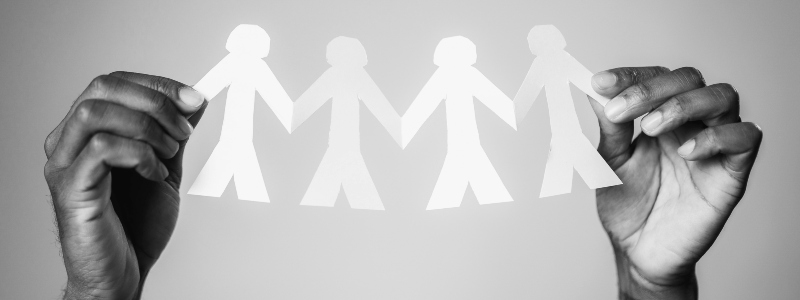Loving and longing can be frequently found in song lyrics nestled up alongside each other as though they are somehow related, however, I would suggest that psychologically they are very different and perhaps opposites, especially in the context of relationships.
To understand longing, we need to understand desire. We can only desire that which we do not have: we desire another until we have them; we desire food (have an appetite) until we eat, after which desire is replaced by satiety. Longing is related to desire but it refers to a desire that cannot be met – a sort of unrequited love.
I work with patients who find themselves in romantic relationships which are deeply frustrating and stuck and yet they cannot seem to leave. Mostly, these people do not understand why they are attracted to men or women who seem unable to meet their needs and unable to commit to anything real. These relationships, or repetitious encounters, seem to be characterised by a lot of excitement followed by a rollercoaster of other feelings but fundamentally what keeps these people stuck in a loop is longing.
Longing is a form of pseudo-desire that promises much and delivers very little. In relationships of the nature I have defined above, longing is addictive like a drug or a desert mirage that drives the thirsty traveller ever forward without the oasis ever appearing.
Is it a girl thing?
At risk of perpetuating gender stereotypes, there is a painful dance that takes place around the impossibility of intimacy that both the masculine and feminine contribute to – after all it is pretty lonely to dance without a partner.
Sex and the city and Mr Big
Anyone who is familiar with the long-running series ‘Sex and The City’ will be familiar with the storyline of Carrie and Mr Big. There is nothing particularly original about them in that it is a modern version of the woman chasing the unavailable man, and research has shown that this storyline forms the basis of most female sexual fantasies. In Sex and The City, Carrie eventually gets her man and Mr Big, in realising how much he has hurt Carrie, pursues her and they eventually marry. It’s the promise in all of these fantasies which is that as long as the girl hangs in there long enough and works hard enough, she will get her fairy-tale ending. ’50 Shades of Grey’ follows the same recipe.
Whether liberal fairy tale or modern-day blockbuster series, the principal message remains the same – hang in there long enough and you will get the love you want and deserve. In other words, longing pays off. It’s an uplifting and encouraging message but largely false.
Relationships that are defined by longing and unavailability and yet both partners cannot seem to give them up rarely end in the fairy-tale ending because that would negate the unconscious function of the longing.
The longing is a re-enactment of past abandonment or loss that has not been worked through. Sadly, romantic relationships are where we often tend to replay these painful dramas from our past and the unconscious ensures that we manage to successfully locate a co-star who will play the opposite role for us, as it corresponds with their relational traumas and loss.
And men?
Archetypally men who are ‘longed for’ are depicted as the unavailable man – think ‘Beauty and The Beast’ and you are on the right track. A man who is untamed and / or has shunned society but who with enough love can be won over and will make a great partner.
The reality of these men is that they are dealing with their own childhood losses but rather than the solution being one whereby they relentlessly hope, instead they relentlessly withdraw. They are not waiting to be loved into a good relationship, they are terrified of intimacy.
So what about love?
Well love in its psychologically mature meaning is a state in which there is mutuality of feeling in the here-and-now. In other words, love recognises the reality of the person who is in front of us, their qualities and their limitations, which is weighed up against the degree to which they can meet our needs. Let’s be clear, this is not the same as ‘falling in love’ which is a very different thing and as Freud so succinctly put it, akin to a form of psychosis as we are consumed by a delusion about the other and only see what we want to see.
Love is the ability to hold ourselves and the other in mind and have this reciprocated. Love is the ability to receive as well as give and to be present for each other’s vulnerabilities. Where love is, longing is not required.
Relinquishing longing
Longing is not really an emotion, it is rather a sentiment. Like melancholy, it has yet to develop into something that resembles a real set of emotions. Beneath longing lies grief which tells us that longing is very different to desire in that it acts in lieu of something that cannot be felt or processed.
Sex and The City Finale
In the show, Carrie and Mr Big get married and live happily ever after which is exactly as it should be in a fairy tale. In real life, a painful relating pattern such as this can really only end happily if both parties are willing to do the work (therapy) and discover why exactly they are both so addicted to longing and being longed for. Then and only then can the grieving begin.
Mark Vahrmeyer, UKCP Registered, BHP Co-founder is an integrative psychotherapist with a wide range of clinical experience from both the public and private sectors. He currently sees both individuals and couples, primarily for ongoing psychotherapy. Mark is available at the Lewes and Brighton & Hove Practices.
Further reading by Mark Vahrmeyer
Is there a Good Way to break up with Someone?
Can Self Help become an Identity?
Can psychotherapy help narcissists?
Are we becoming more narcissistic?









